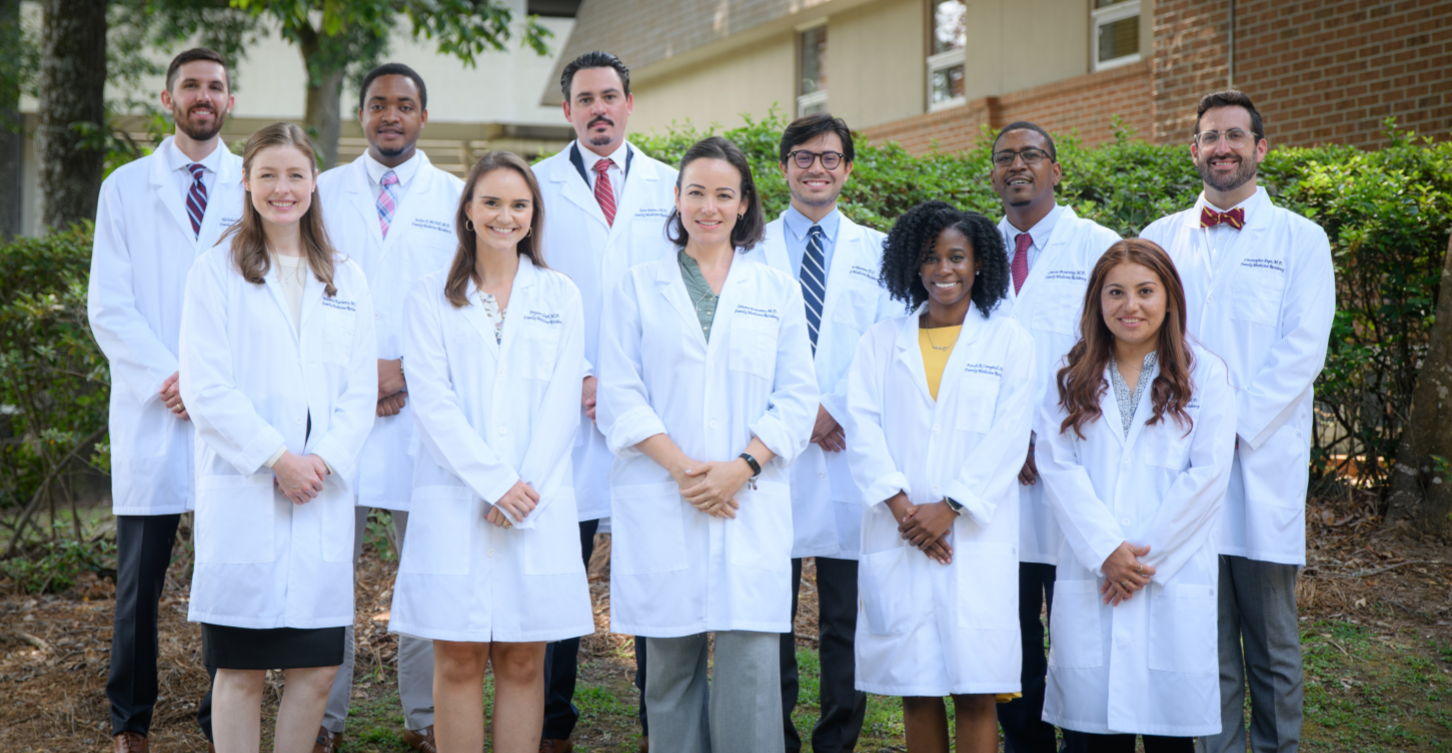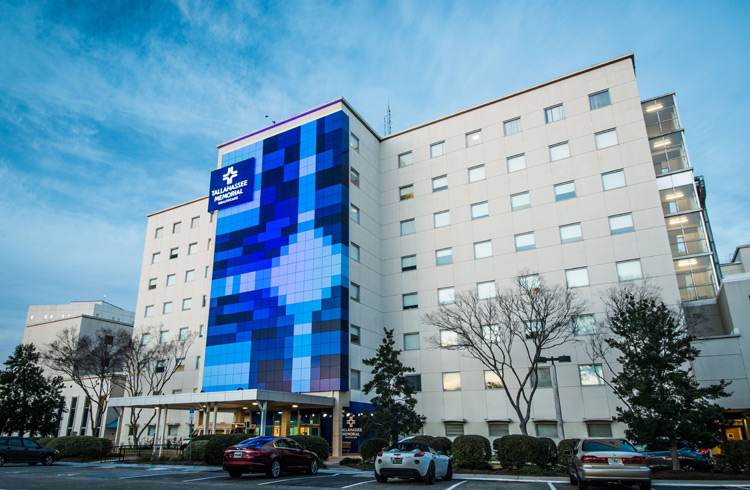Colleague Stories: Lessons, Growth and Grounding in Residency
May 14, 2025
By: Tallahassee Memorial HealthCare
Categories: Colleague Stories, Healthy Living
At Tallahassee Memorial HealthCare (TMH), residency programs are more than clinical training — they’re pathways for physicians to grow into confident, compassionate leaders in healthcare. TMH offers a range of residency programs designed to prepare doctors for real-world practice with hands-on experience, strong mentorship and a focus on whole-person care. From pharmacy to psychiatry to family medicine, these programs emphasize a balance of academic rigor and personal wellness, helping residents thrive in and out of the hospital.
Mary Hughes, MD, is a resident in TMH’s Family Medicine Residency Program, a three-year, fully accredited program. With a mission to serve the diverse and often underserved populations of North Florida and South Georgia, the program gives residents comprehensive training across all ages, backgrounds and health conditions — preparing them to become well-rounded physicians who can practice anywhere.
Starting residency is often described as jumping into the deep end of medicine — and for Dr. Hughes, the past year has brought both the expected challenges and unexpected rewards of life as a first-year resident. But for Dr. Hughes, who grew up in Tallahassee and returned to complete her residency here, this journey has been more than clinical training. It’s been a year of connection — to patients, her team and herself.
“Even though I’m from here, I didn’t fully realize the reach TMH has,” she said. “We have patients driving from rural areas across North Florida and South Georgia. It really puts our responsibility into perspective.”
What Residency Teaches You: Beyond the Textbook
Medical school lays the foundation, but residency builds the framework of a physician’s identity. In her first year, Dr. Hughes found herself confronting real-life complexities — not just in terms of diagnoses but in understanding the full scope of her patients’ lives.
“You learn about social determinants of health in school — how income, environment or family situations affect care,” she explained. “But in residency, you see it firsthand. You realize that the ‘right’ medical treatment may not work if someone can’t afford it or if they don’t have transportation or they’re navigating instability at home.”
That insight has shaped how she approaches patient care — balancing clinical decision-making with empathy and adaptability. As a family medicine resident, Dr. Hughes rotates through a wide range of specialties — from pediatrics and obstetrics to inpatient care and behavioral health — and she’s learned that adaptability is key.
“There’s a lot coming at you all at once. Every rotation teaches you something different and it takes time to feel comfortable. I’m definitely more confident now than I was at the start — but I also know I’ll be learning something new every day.”
The Power of Continuity
Despite the long hours and diverse training, what’s left the biggest mark on Dr. Hughes are the relationships she’s formed — not just with colleagues but with patients. She recalls one experience in particular that highlighted the essence of family medicine.
“I had the privilege of caring for a patient throughout her pregnancy, delivering her baby and now I continue to care for the baby as their physician,” she said. “That continuity — being there for different stages of life — that’s why I chose family medicine.”
Moments like that reaffirm her choice, even when the days feel long or the workload overwhelming.
Learning from Challenges and Mentorship
While residency has its high points, Dr. Hughes is open about the challenges — especially in the beginning.
“There’s just so much to learn. You go from being a student to having real responsibility and that transition is intense,” she said. “But I’ve been incredibly lucky to have upper-level residents and faculty who are generous with their time and knowledge.”
And when it comes to the less glamorous side of medicine? “Charting is the hardest part,” she said with a laugh. “It can feel like it takes longer than the visit itself. I try to finish everything at the clinic or hospital so I’m not bringing work home.”
Still, she considers herself fortunate to have avoided burnout so far — largely because she has a strong support system and has learned to prioritize what keeps her grounded.
Making Time for Herself
Outside of the hospital and clinic, Dr. Hughes puts effort into staying connected to life beyond medicine. From gardening to long walks with her dog Sadie Grace, she’s found comfort in small, restorative routines.
“Even if it’s just 15 minutes outside at the end of the day, it makes a huge difference,” she said. “Spending time in nature and with my loved ones helps me decompress and remember who I am outside of being a doctor.”
Being in her hometown has made that easier. “I knew that coming back to Tallahassee would give me the best chance to thrive,” she said. “My family, my friends, my roots — they’re all here. And that support matters more than anything.”
She’s also gained a few new habits thanks to the resident lifestyle. “I’ve become hyper-aware of whether I have my hospital badge on me,” she joked. “Even on my days off, I’ll catch myself reaching for it.”
Advice for the Next Class
As she wraps up her first year, Dr. Hughes has thoughtful advice for medical students and soon-to-be residents — lessons she’s learned from the inside out.
“Come into residency with good habits already in place. Whether that’s exercise, journaling, eating well or just knowing when to rest — if your cup is full when you begin, you’ll be better able to take care of others.”
She also encourages new grads to truly celebrate before starting the next chapter. “Don’t try to study. Travel, relax, spend time with your people. You just finished medical school — that’s an enormous accomplishment. Give yourself permission to enjoy it.”
And for those who ever felt unsure about their path in medicine?
“Don’t let anyone tell you you’re not cut out to be a doctor just because you struggled in one class,” she said. “I was terrible at chemistry. But I’m here — and I love what I do.”
To learn more about the residency programs at TMH, visit TMH.ORG/residency.

